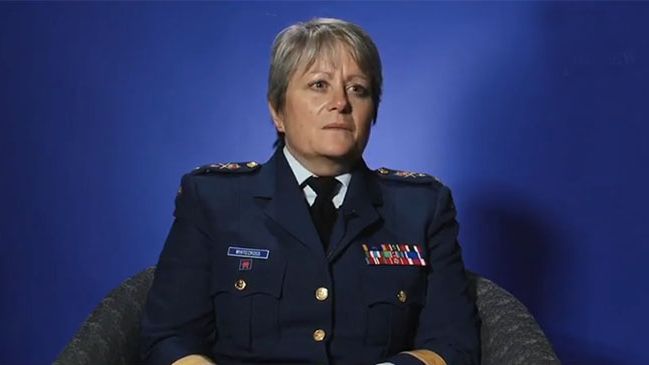18th International Kyiv Week
Reshaping NATO’s posture for 21st Century Challenges
On the April 23, 2018, the NATO Defense College (NDC) and the Ukrainian National Defense University (UNDU) launched the 18th edition of the International Week in Kyiv.
As NATO’s premier academic institution, the NDC is unique in its role as an international civilian and military establishment with a specific curriculum focused on NATO and has provided quality education for more than 65 years. The core output of the NDC is to prepare senior officers, diplomats, and civilian officials to hold positions in NATO, in NATO-related posts in their respective capitals, and in multinational organizations.
NATO’s support of senior military education in Ukraine was instigated in January 2000 by then Minister of Defense of Ukraine, His Excellency Mr. Kuzmuk, and Lord Robertson, former NATO Secretary General. The key tenet of this support is International Kyiv week, which is an excellent opportunity to broaden mutual understanding between the NDC and Ukraine, our valuable Partner.
The NDC mission is to contribute to the effectiveness and cohesion of the Alliance by developing the NDC as a major centre of education, study and research on transatlantic security issues. Adaptation of the NDC curriculum is essential for the College to stay in pace with the development of the global security situation in order to serve the Alliance effectively and continue to develop future leaders. Both our Research Department and our principle of academic freedom encourage and enable the evolution of our curriculum.
UNDU students, and participants from Ukrainian Ministry of Defense and General Staff, will discuss the ways in which NATO nations control their respective armed forces using the instruments of devolution and decentralization, and the concept of Mission Command all of which form the basis of the NATO Operations Planning Process. Through these discussions, we will increase mutual understanding, with the intent of enabling participants to be able to think, plan, and communicate together on a strategic and strategic to operational level.
This year’s program focuses on a younger generation of students, those leaders of the future, who will lead the adaptation of their defense and security in preparation for the future and uncertain security environment. NATO is proud and honored to play a part in the education of these future leaders and aims to help them be better prepared for what the future may bring. The theme for this 18th edition of “International Week” at the UNDU is “Reshaping NATO’s posture for 21st Century Challenges.” Allow me to explain why we chose this particular topic this year.
International week is focused on developing future leaders who are open to innovation and, therefore, will be in a position to make informed decisions about how, when, and where to incorporate the appropriate technology into the challenges of the future.
Although the military may no longer be on the cutting edge of development of new technology, there is no question that technology is one of the main engines driving the ways in which we interact, how we plan, and how we conduct operations.
As one of the lectures points out, some of the more significant escalations in military capability have occurred after momentous breakthroughs and invention in the scientific area. For example, the development of the internal combustion engine in 1876 led to the mechanization of military capability such as artillery, infantry and eventually, the airplane; another is the rapid growth in physics from 1910-25 which led, in part, to nuclear weapons; and a final example is the advances made in semiconductors and microelectronics in the 1950s and 1960s that led to global positioning systems, embedded and miniaturized computers, and greater automation. This last example is exemplified through the military successes and precision that was seen in the First Gulf War, and that has developed further leading to the military capabilities and strength of NATO over the past 25 years. During International Week, it is time to consider this century’s “billion dollar” question: what is next? The week will provide participants the opportunity to think deep and hard about the future and to enable discussion that will broaden understanding, knowledge and maybe even allow discovery. This is the challenge that we want to scratch the surface of together – the NDC, UNDU, and participants alike.
We have seen that International Kyiv Week – the joint academic event conducted by the NDC and the UNDU is playing a pivotal role in providing an in-depth understanding of the Alliance and approaches to strategic-level education. As such, the International Week continues to heighten the mutual respect that exists between the Alliance and its long-standing partner, Ukraine.
As Commandant of the NDC, I am extremely happy that International Kyiv Week is to be executed once again and proud that I bring my team to the UNDU to be among friends. Confucius once said: “When I walk along with two others, from at least one I will be able to learn.” I expect, indeed I am certain, that the NDC, UNDU, and Ukraine will all learn from each other during this highly anticipated week.
Lieutenant General Chris Whitecross is Commandant of the NATO Defense College in Rome
Newspaper output №:
№27, (2018)Section
Topic of the Day





